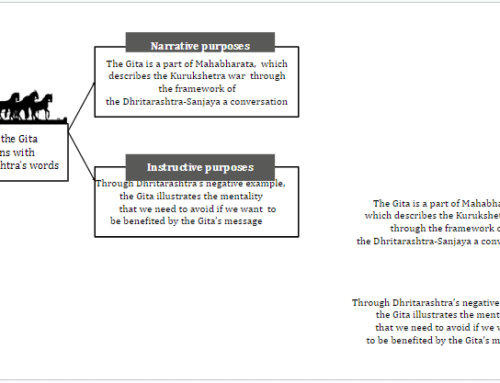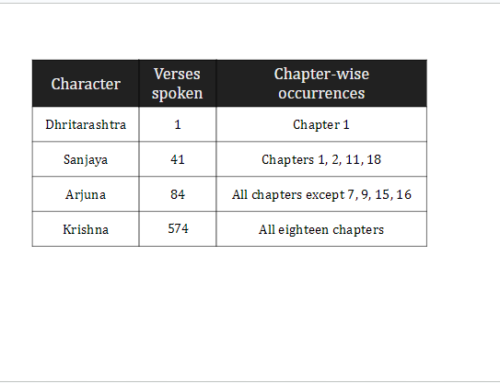Just because something is not our fault doesn’t mean it is not our responsibility
Suppose a father who owns a firearm keeps it accessible to his teenage son. If the son injures someone with that gun, the son is responsible. But so is the father, for keeping the gun accessible to the son.
Such was the culpability of the blind king, Dhritarashtra, who was disproportionately attached to his vicious son, Duryodhana. Dhritarashtra’s attachment is seen in his starting question in the Bhagavad-gita (01.01) when he identified as his own people only his sons, the Kauravas – not his nephews, the Pandavas.
Dhritarashtra himself was not fighting the Kurukshetra war; Duryodhana was. As Duryodhana was a legal adult, his father couldn’t be held entirely responsible for his misdeeds.
But Dhritarashtra wasn’t just a father; he was also the king. And preventing misuse of royal resources was the king’s responsibility. Duryodhana was seeking to satisfy his hunger for power by misusing the royal treasury and military – something far more dangerous than a firearm.
Unfortunately, Dhritarashtra abdicated his responsibility to stop such misuse. When, before the war, Krishna came with a peace proposal, the king washed off his hands, saying, “I accept what you are saying, but my son doesn’t listen to me. What can I do?” Thereafter, Krishna addressed Duryodhana, but that arrogant prince rejected Krishna’s proposal and even tried to arrest Krishna. And Dhritarashtra remained silent throughout, thereby incriminating himself for the ensuing bloodshed.
When we take a responsible position of leading others, if they act wrongly, that may not be our fault; they have their free will, and we can’t control them entirely. Yet we have the responsibility to not empower them in their wrongdoing – to, in fact, actively disempower them from doing wrong at our expense. Using our resources rightly, and ensuring that they are used rightly, is our responsibility.
Think it over:
• Why is the father responsible if his son misuses a firearm?
• Why was Dhritarashtra responsible for Duryodhana’s misdeeds?
• When our subordinates act wrongly, what is our responsibility?
To know more about this verse, please click on the image
Explanation of article:
https://youtu.be/9nPTEm5hYUg
Podcast:




fault makes you aware of your responsibility